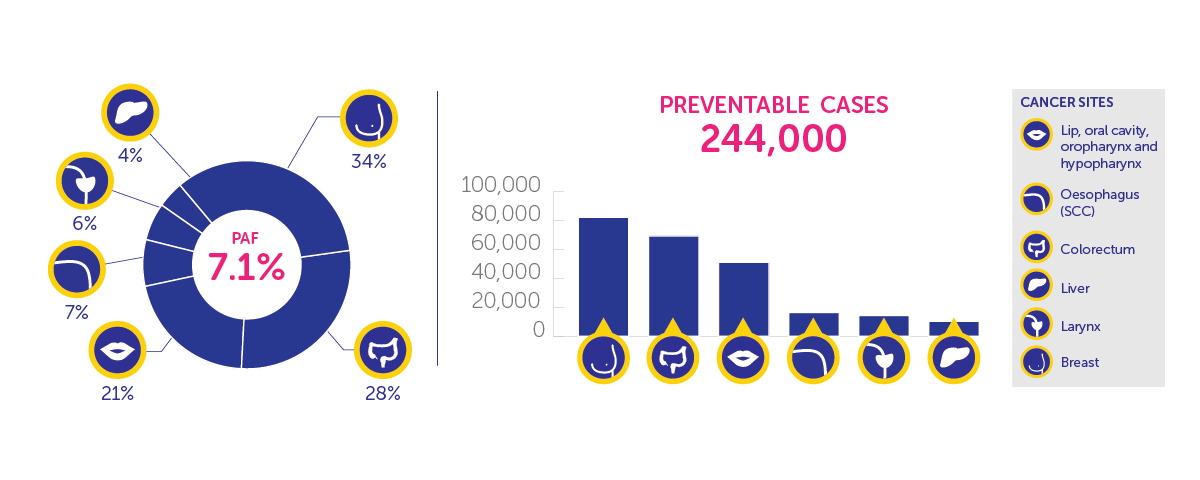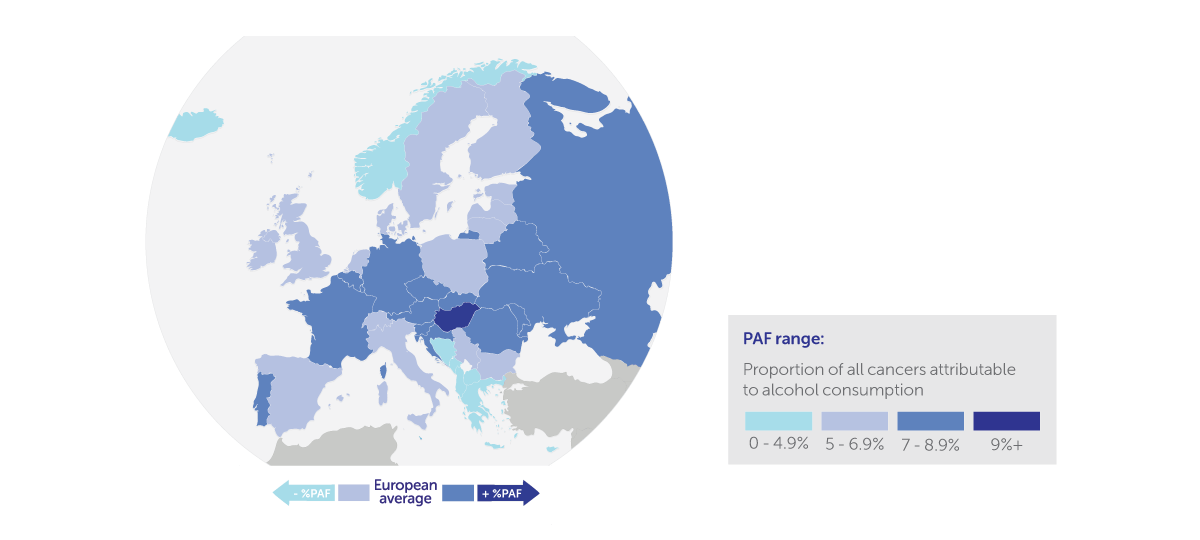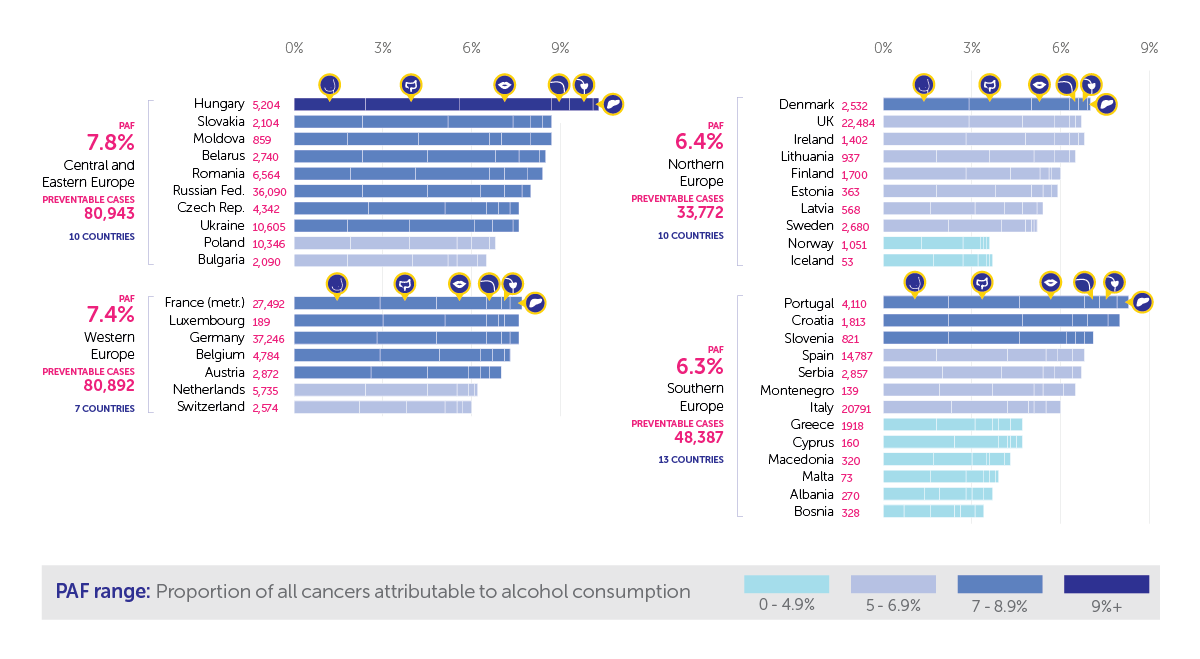Alcohol-related cancers and prevention
Cancers caused by alcohol in Europe
Alcohol consumption is estimated to be an attributable factor for more than 244 000 cases of cancer in Europe each year. Interventions to reduce alcohol consumption would also provide substantial benefits in terms of reduced morbidity and mortality from, among others, cardiovascular disease, liver disease, and accidental injuries. This figure shows the proportions of all cancers and the numbers of cancers that could be prevented by alcohol control in Europe.
Proportions of all cancers and numbers of cancers that could be prevented by alcohol control in Europe
The 7.1% of all cancer cases in Europe that are attributable to alcohol consist predominantly of cancers of the breast, colorectum, and lip, oral cavity, oropharynx, and hypopharynx, but also include cancers of the oesophagus (squamous cell carcinoma, or SCC), larynx, and liver.

Infographics produced in partnership with Cancer Research UK
Europe summary

Infographics produced in partnership with Cancer Research UK
Country summaries
The charts show, for each country in Europe, the overall percentage of cancers at all specified sites that are attributable to alcohol consumption (the population attributable fraction, or PAF). The PAF uses information on the risks of alcohol consumption, the prevalence of alcohol consumption, and the incidence of cancer in each country to calculate the proportion of cancers that could be prevented by alcohol control. Adjacent to each country name is the estimated number of new cases this represents for 2012.

Infographics produced in partnership with Cancer Research UK
To download the A4 poster, click here.
Thank you to Alice Cotelli and Jon Shelton of Cancer Research UK for designing and producing the figures.
- Ferlay J, Soerjomataram I, Ervik M, Dikshit R, Eser S, Mathers C, et al. (2013). GLOBOCAN 2012 v1.0, Cancer Incidence and Mortality Worldwide: IARC CancerBase No. 11 [Internet]. Lyon, France: International Agency for Research on Cancer. Available from: http://globocan.iarc.fr (accessed 4 January 2018).
- WHO Global Health Observatory (GHO) data. Adult per capita consumption of alcohol for 2002 from the Global Information System on Alcohol and Health (GISAH), 2018. Available from: http://www.who.int/gho/alcohol/en.
- Bagnardi V, Rota M, Botteri E, Tramacere I, Islami F, Fedirko V, et al. (2015). Alcohol consumption, site-specific cancer risk: a comprehensive dose-response meta-analysis. Br J Cancer. 112(3):580–593.
- Shield KD, Marant Micallef C, Hill C, Touvier M, Arwidson P, Bonaldi C, et al. (2018). New cancer cases in France in 2015 attributable to different levels of alcohol consumption. Addiction. 113(2):247–256.
- Rehm J, Shield KD, Rehm MX, Gmel G, Frick U (2012). Alcohol consumption, alcohol dependence, and attributable burden of disease in Europe: potential gains from effective interventions for alcohol dependence. Toronto, Canada: Centre for Addiction and Mental Health.

